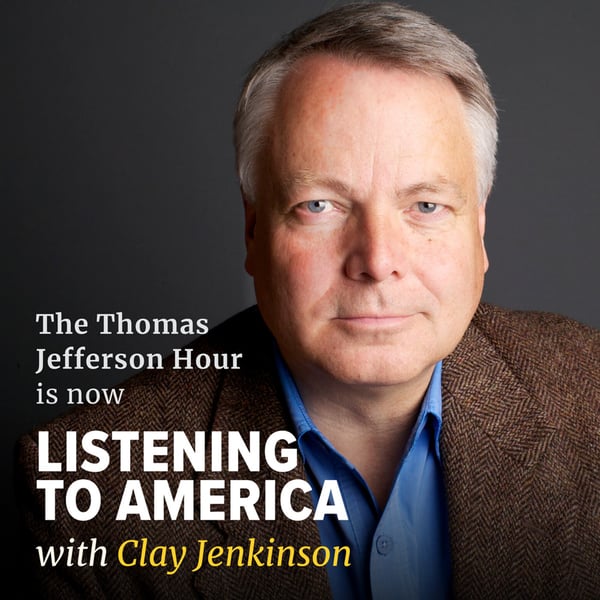#1590 Ten Things: The Jefferson-Adams Correspondence
Listening to America
Listening to America
4.6 • 1.1K Ratings
🗓️ 11 March 2024
⏱️ 60 minutes
🧾️ Download transcript
Summary
Clay Jenkinson is joined by regular guest Dr. Lindsay Chervinsky to discuss the extraordinary correspondence between former Presidents Thomas Jefferson and John Adams. Between 1812 and 1826, they exchanged 158 letters, thought by historians to be the finest correspondence in American history. They wrote about their political visions and disagreements, the French Revolution, the origin of Native Americans, their private and public religious views, the American West, their children and grandchildren, and so much more. Jefferson was more formal and serene, Adams more candid and at times aggressive. In his fourth or fifth letter Adams said, “we must not die until we have explained ourselves to each other.” They both worked hard at it, usually with remarkable harmony. They died on the same day, July 4, 1826, Jefferson first at Monticello and Adams five hours later in his bed in Quincy, Massachusetts.
Transcript
Click on a timestamp to play from that location
| 0:00.0 | Hello everyone and welcome to this introduction to our podcast edition of listening to America |
| 0:04.6 | ten things about the Jefferson Adams correspondence. You know sometimes I lose some of my zeal for |
| 0:12.2 | Mr Jefferson. |
| 0:13.2 | There are things about him that are frustrating. |
| 0:16.3 | It's about everyone, of course. |
| 0:18.3 | And there is a level of evasiveness |
| 0:21.6 | or even duplicity in his character at times. |
| 0:25.8 | You know, the problem is that Jefferson could not just be |
| 0:28.8 | a man of letters and a scientist and an exemplar of the Enlightenment. |
| 0:33.7 | He could not just be a classifier of library collections, |
| 0:37.7 | an amateur paleontologist, America's foremost architect. |
| 0:42.0 | If he had never been involved in politics, it'd be easier for us to see consistency in his character. |
| 0:50.0 | But the worst thing that can happen to an ideologue is that she or he holds power. |
| 0:55.0 | And when you hold power, you essentially have to moderate your views in order to lead a nation, in order to get things done and Jefferson did he was close |
| 1:07.8 | to being a kind of quasi federalist during his two terms as president to the United States. |
| 1:14.0 | So being an ideologue, and Jefferson truly was a political radical, |
| 1:18.0 | with a very strong agrarian vision of exceedingly limited and local government. an |
| 1:25.0 | agrarian vision of exceedingly limited and local government, a nation that was isolationist and minded its own business |
| 1:28.0 | and turned its back on the havoc of the rest of the world. |
| 1:33.2 | In spite of that ideology, which is a very powerful ideology in Jefferson, he's not a pragmatist |
| 1:38.6 | really. |
| 1:40.4 | He was able to play a pragmatist when he held power and this frustrated people like John Randolph of Roanoke and others |
... |
Please login to see the full transcript.
Disclaimer: The podcast and artwork embedded on this page are from Listening to America, and are the property of its owner and not affiliated with or endorsed by Tapesearch.
Generated transcripts are the property of Listening to America and are distributed freely under the Fair Use doctrine. Transcripts generated by Tapesearch are not guaranteed to be accurate.
Copyright © Tapesearch 2025.

